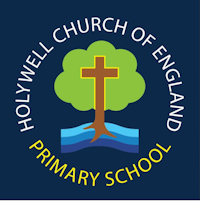English
At Holywell, we believe that being proficient in reading and writing provides the children with the ability to access wider foundation subject curriculum and is key to future academic success. It is not surprising therefore that the teaching of English is a large focus of our school day right from the moment the children start with us in EYFS.
Below, you will find a link to our English Overview which details our approach to the teaching of English. Additionally, you can find out more about our approach to the teaching of phonics and early reading on our dedicated phonics page within the curriculum section of this website.
Some of the fundamental aspects of our approach to teaching reading and writing are detailed below.
English: Guided Reading
We believe reading is a lifelong skill, which prepares children for a bright and successful future and unlocks a deep understanding of the world around them. Our aim is to ensure children become fluent, competent and motivated readers who develop a love of reading and recognise its importance as a vital life-skill.
Children from Year 2 up to Year 6 have whole-class guided reading lessons. Each week, the children read a different high-quality text or text extract and are taught to 'pull apart' the vocabulary of the text and apply key reading skills such as summarising, retrieving, inference and prediction skills alongside others.
Wider Reading Across the Curriculum
Our approach to reading is in line with the mantra ‘'learn to read so that we can read to learn', ensuring that reading is not limited to guided reading lessons. Children are taught to apply the reading skills discretely taught in guided lessons in other foundation subjects.
Class Novels
It is an expectation that class teachers spend at least 10-15 minutes each day reading a high-quality novel to their class. These texts are carefully chosen to ensure that children are exposed to a wide variety of diverse stories and storytellers, while also seeking to increase their cultural capital. These texts are also often (though not always) linked to writing units to support an immersion into the text.
Home Reading
Children are encouraged to read daily at home as part of their home learning. Parents and carers are expected to sign children’s reading logs and include comments where appropriate. Staff monitor children’s reading logs weekly in classes from Year 2 up to Year 6.
In Key Stage 2, the class with the highest number of daily readers at the end of a week, earns the Reading Trophy for their class.This is celebrated in our weekly whole-school assemblies.
In EYFS and Key Stage 1, the children have a reading challenge to engage with where they earn a book once they have hit their target number of books to read (in multiples of 100).
We regularly 'benchmark' children's reading ability to ensure that each child has a home reading book that matches their reading ability and enables them to make progress. Children are also encouraged to take and additional book, outside of their book band, to share with an adult at home and promote further reading for pleasure.
Our Holywell Reading Challenge promotes reading across a range of genres and subject areas in Years 2 to Year 6. The challenge entails reading twelve books over the course of the year, which include a range of fictional genres in addition to poetry and non-fiction texts. Completion of the challenge is celebrated in whole-school assemblies and rewarded with reading-related prizes.
English: Writing Lessons
We seek to inspire children to become aspirational, motivated and dedicated writers who understand how to writing effectively for a range of purposes.
Across the school, children have daily opportunities to write. In EYFS, this is planned within the continuous provision and children have the opportunity to write under instruction in phonics sessions and within small groups.
From Year 1 onwards, we follow a mastery approach through the Pathways to Write scheme. Units of work are delivered using high-quality texts and children in all year groups are given varied opportunities for writing. Skills are built up through repetition within the units, and children apply these skills in the writing activities provided. Children revise writing skills from previous years (referred to as 'Gateway Keys'), alongside learning skills and objectives for the current year group (known as 'Mastery Keys').
Children are also taught the spelling, punctuation and grammar requirements as set out in the English programmes of study in the National Curriculum. Children revise and are taught spelling rules on a weekly basis using the Pathways to Spell programme from Year 2 onwards.
The end of year expectations for writing, reading and spoken language for each year group can be found in the documents below.
